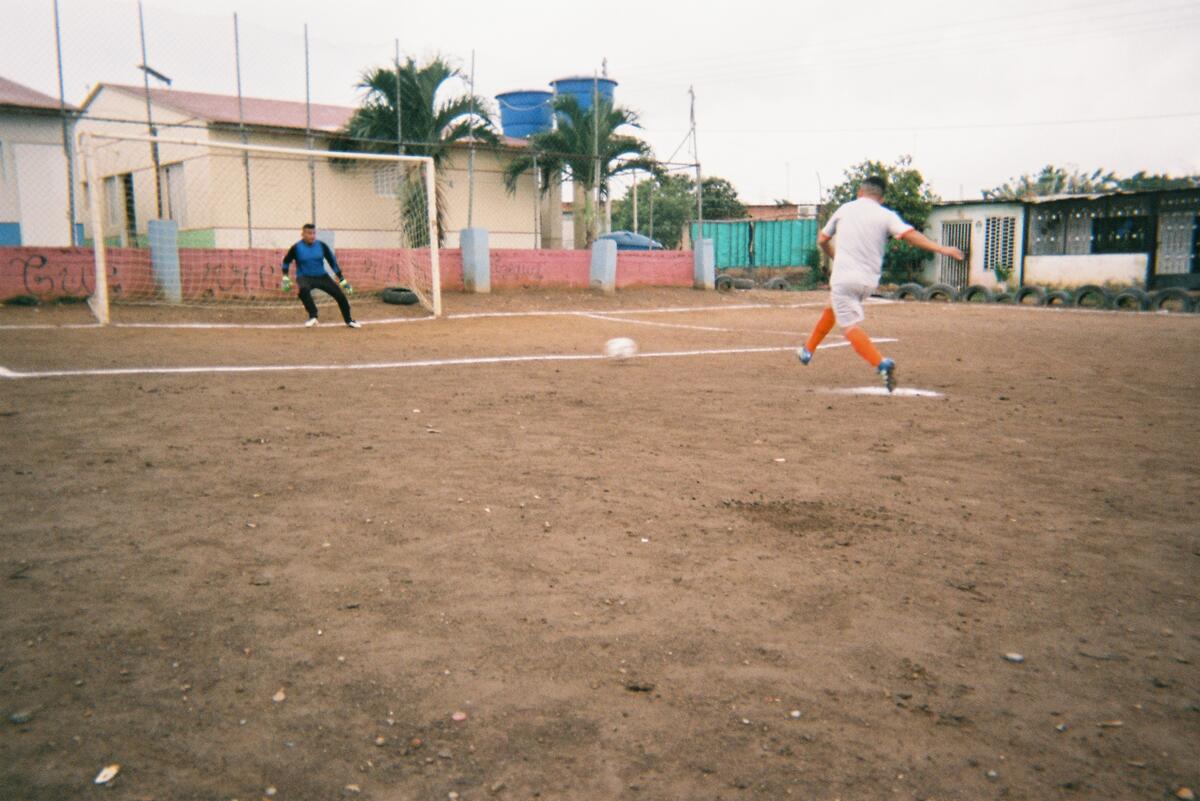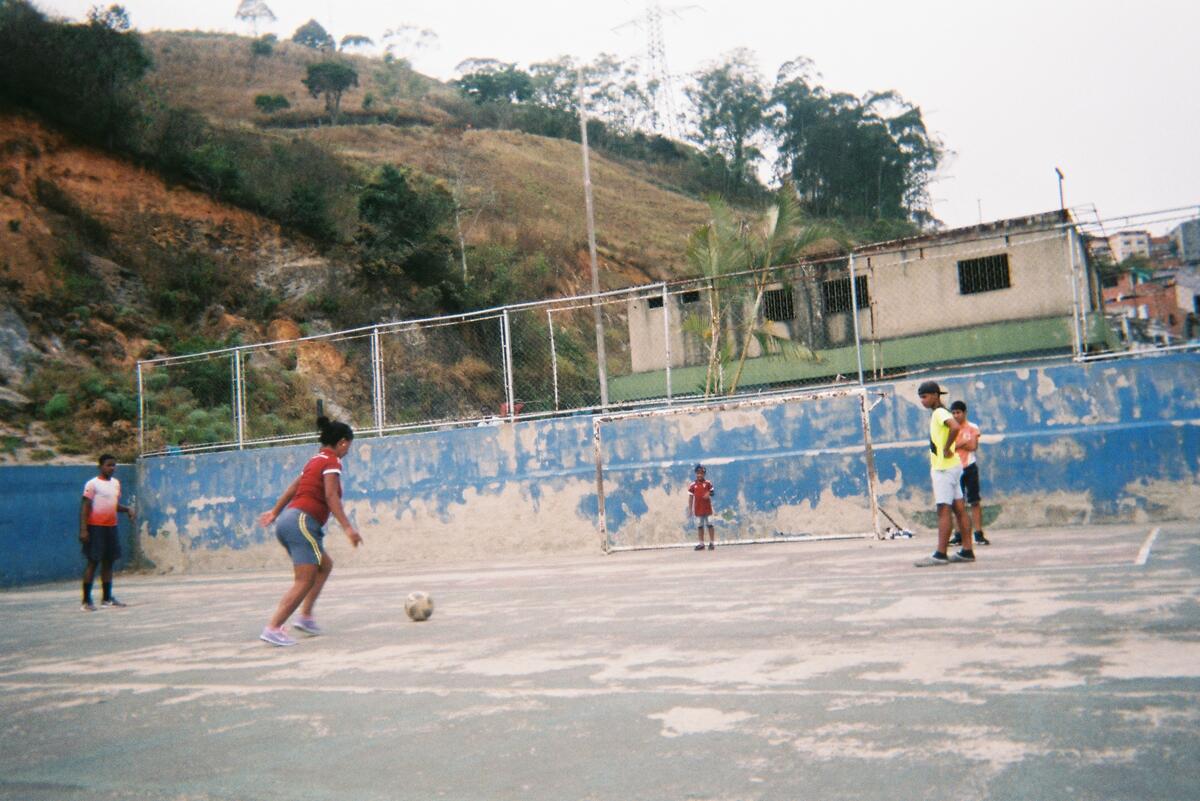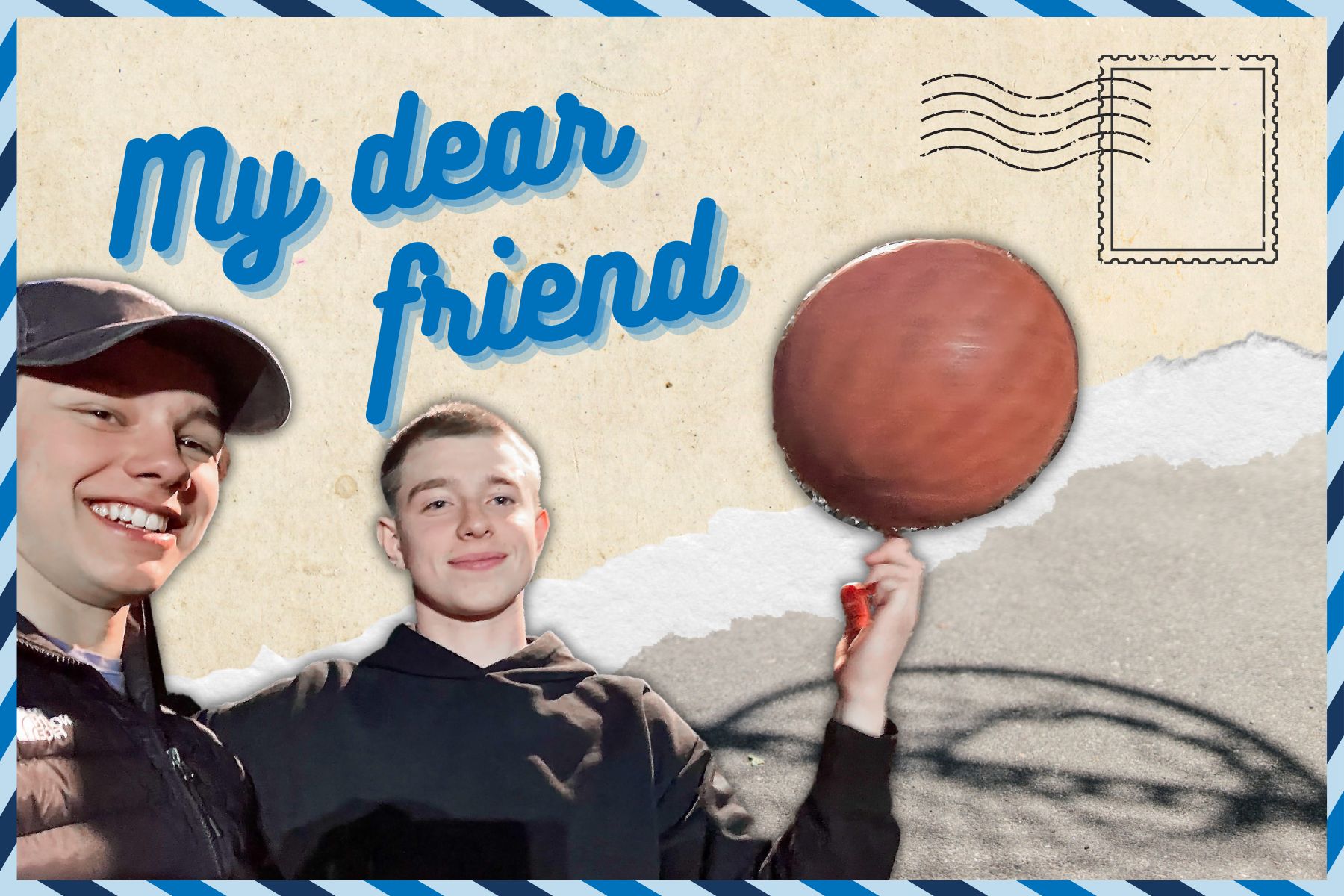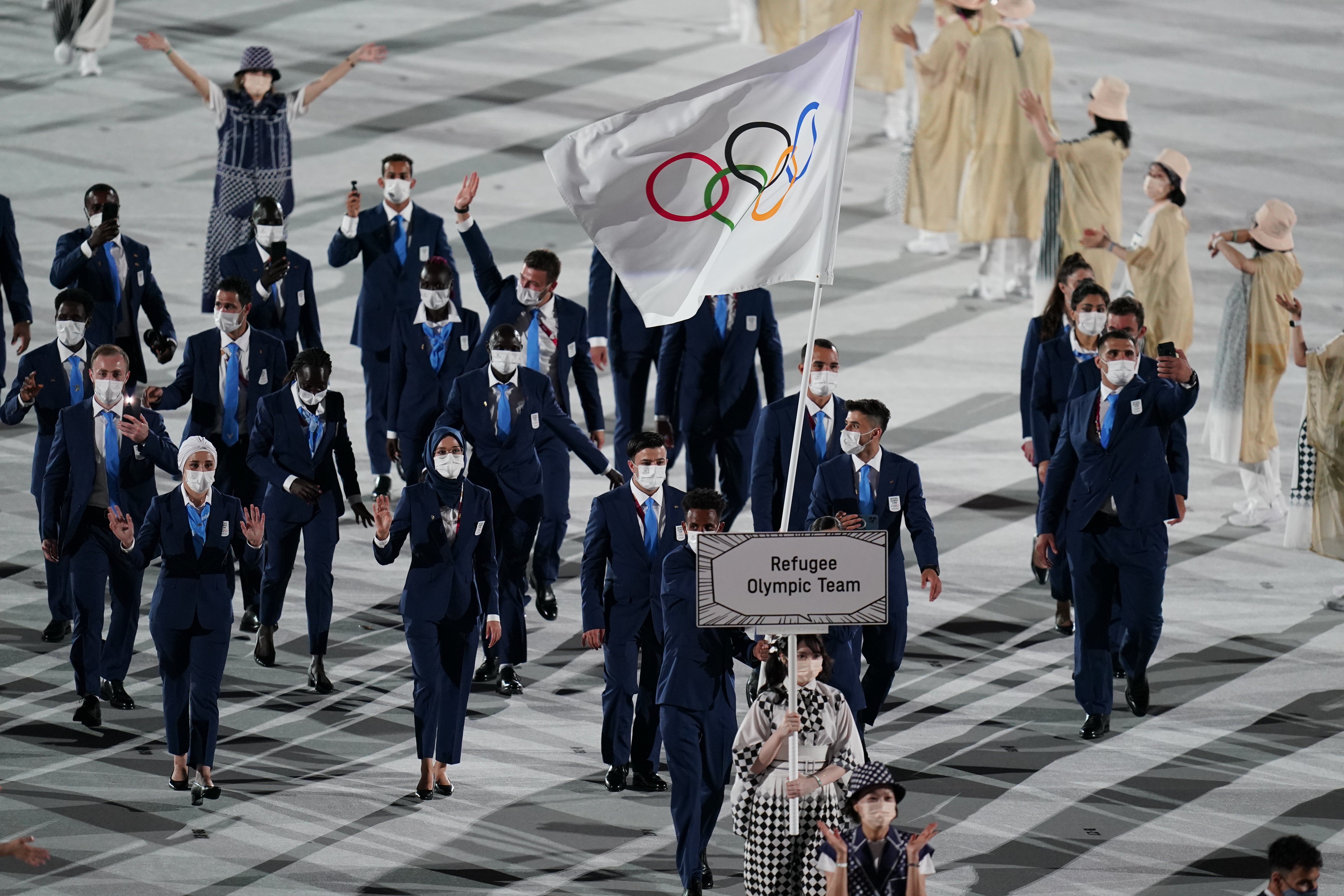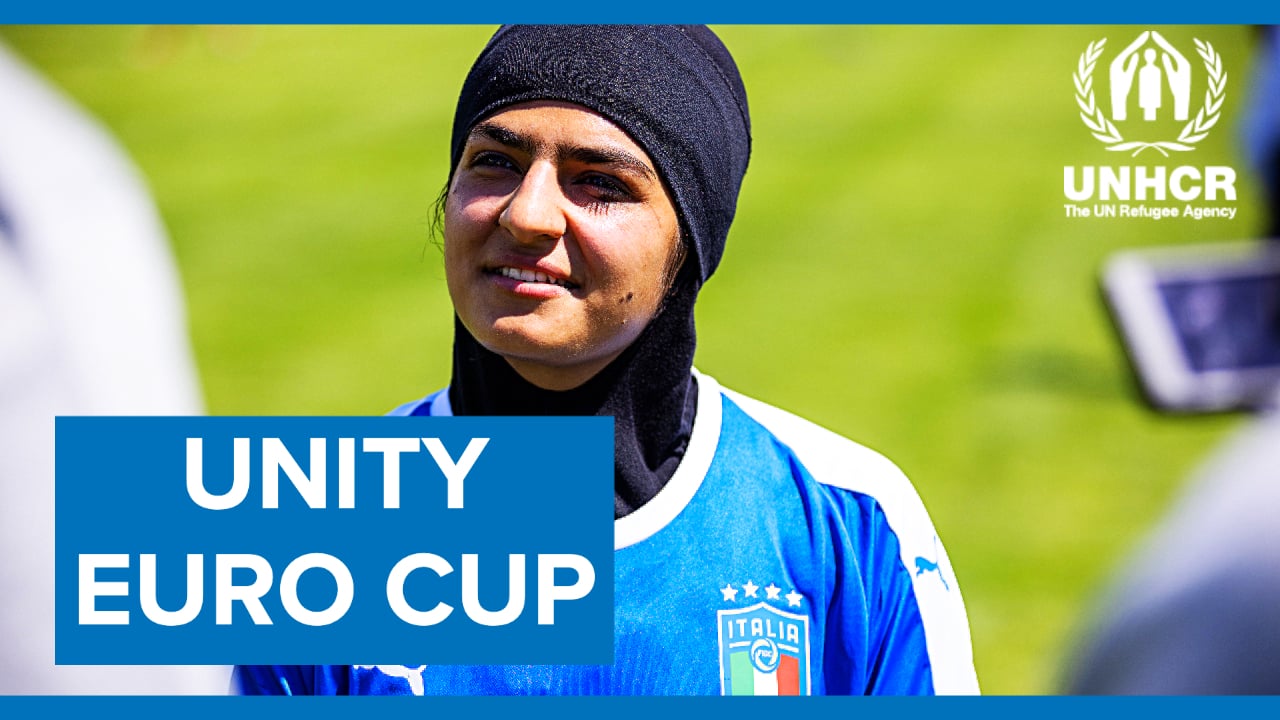Q&A: Norwegian bikes to South Africa for refugee awareness in run-up to World Cup
Q&A: Norwegian bikes to South Africa for refugee awareness in run-up to World Cup

GENEVA, October 28 (UNHCR) - Football is in Bjorn Heidenstrom's blood. He used to play professionally in his native Norway and in the United Kingdom. The 41-year-old marketing and media manager for Norwegian Premier League team Valerenga is also a humanitarian. Earlier this year, he set out by bicycle from Norway en route for South Africa, which he plans to reach in time for next June's 2010 World Cup. Heidenstrom will be raising awareness about refugees as well as collecting signed football shirts from professional and amateur clubs in the countries along his route. These will be used to make the world's largest football shirt, which will be displayed in South Africa. Earlier this week, he paid an impromptu visit to the Geneva headquarters of the UN refugee agency. Before heading off to his next stop, Lyon in France, Heidenstrom talked about his grand bike tour to UNHCR's Haude Morel, Jeremy Bogen and Leo Dobbs: Excerpts from the interview:
Why refugees?
The most focused thing in my brain was refugees, it's very easy to absorb. Many of them lost kids, I have kids; many of them lost their parents, I'm a parent. Photographs I see make it so easy for me to take it in and say, "Hey, that's the most important thing in the world where I can help bring some change and spread some awareness." Also, my kids are in school and they come to me and say, "Hey, refugees, Daddy."
How did you come up with the ideas for a bike ride and football shirts?
In my first job as marketing manager at a premier league club, we got a lot of sponsors' money, bought four players and then the money was gone. That was fun. But then a very good friend told me how I could use the football arena, the football family, to spread values or to change mindsets about values.
Then I started thinking of some cause to promote. In Norway, we have a big tradition of exploration and the best known adventurer of all is Fridtjof Nansen [the late polar explorer and first High Commissioner for Refugees].
One evening, I mused that the only place you could find grown-up lads, tattooed, crying together, singing together and hugging each other, was in a football stadium. They do it because they are tribe members and they follow a shirt with a logo on it, such as a red one for Liverpool, or a black-and-white one for Newcastle and so on. I thought, what if I take that symbol, those colours, that shirt and I sew it together with another shirt and another shirt and make the world's biggest football shirt? Then, what if I expose that shirt during the World Cup football tournament with 900 million people watching? That would be good exposure, bring a lot of attention to the symbol or cause. I thought of the football family standing together and thinking about refugees, caring about refugees, spreading awareness about refugees.
That's a good idea, I thought, so I called a friend on the South African World Cup Committee. And he says, "Yeah I like it, I am going to speak with the big guys in the committee." He came back and said: "They like it - what are you planning to do?"... I said "I'll cycle. I'll cycle through all of these football countries and collect football shirts from fans and players." I thought that a man on a bike, uniting the football fraternity to support this symbol [of the shirt] for the refugee cause will get a lot of media attention.
You started cycling on World Refugee Day. Tell us about your progress.
I started on World Refugee Day [June 20] in front of the Nobel Peace Centre in Oslo. And I've been through Sweden, Finland, Russia and many more - this is Day 129. And it's been working. Sir Elton John signed a jersey of his favourite team, Watford, and said, "I want to be a part of this project." Then we got Iron Maiden, the heavy metal group; then we got Liverpool and Manchester United. But for me the coolest part has been the small boys' and girls' team, or fans, saying they want to be a part of this by sending in their signed old football shirts. So far, it looks like some 20 million people have heard about my trip from the media.
I should mention here that the start group for me was the [UNHCR partner] Norwegian Refugee Council, who basically said to me three years ago, we need more attention... Now we are getting more and more support and attention. For example, a few days ago when I was heading for France, I got the message that I must cycle to Zurich to meet Sepp Blatter, the president of FIFA. I was told, "He wants to give you his signed shirt, shake your hand." That was a good day for the project, it's like meeting Obama. After him, a message came from Nyon, the headquarters of UEFA. Michel Platini did the same. These two are very important for the football family.
Then I came to this building [UNHCR]... I've asked staff here to help me improve the communications side of things; what buzzwords should I use, what slogans, what should be the focus. I've told people to regard me as a remote-controlled cyclist. They should tell me "go there, say this, wear this." I've also been given advice about how to use Twitter in the best way.
How many countries have you visited so far?
Fourteen or 15 in Europe. My plan is simple: I cycle to places where I can find football friends and football shirts. Next I will go to Spain, Portugal, Italy, ex-Yugoslavia... I first travelled to countries where I knew people well - Norway, Sweden and Finland. Then I went to Russia because it was a place where Nansen helped millions of people [as League of Nations High Commissioner for Refugees during the 1921-22 famine]. I went to Great Britain in time for the start of the football season.
Will you be cycling down through Africa?
Yes, but this is not about me being a tough guy who can cycle far and wide. I would love to borrow a helicopter if someone has one. This is about building the symbol, building the attention and awareness... The nature of the trip will change when I come to Africa. In Europe it is about uniting football people, travelling down though Africa I will become an eyewitness [to the lives and suffering of refugees and other forcibly displaced people].
I will go through Egypt and then Sudan. I'm going almost in a straight line. Then Kenya... I have friends in Sudan who will help me and I am also asking UNHCR where they want me to go, where is secure and where is not. Where are the friends who can help me, so I can be a good eyewitness. I need help with intelligence on how to operate and be secure, and how to do the right things... At the moment, I know that Rwanda may be possible; the [Democratic Republic of the] Congo is difficult, but I have asked UNHCR to please help with that. If UNHCR or the Norwegian Refugee Council tell me not to go somewhere, then I won't.
I've spent a lot of time gathering information about what to eat, shelter, security and all the vaccination shots I need, all the back-up. I'm very, very humble about the situation.
What type of equipment will you be taking?
I got a bike as a gift from Hyundai. The first one was stolen in Amsterdam and I had to wait for two days to get a new one. I have a trailer where I keep communications equipment, which means a laptop. I have my tent, my sleeping bag, things to eat and things that need to be kept secure. I have no back-up team, but I'm used to the outdoors life in Norway, where I grew up with nature, hunting and fishing.


